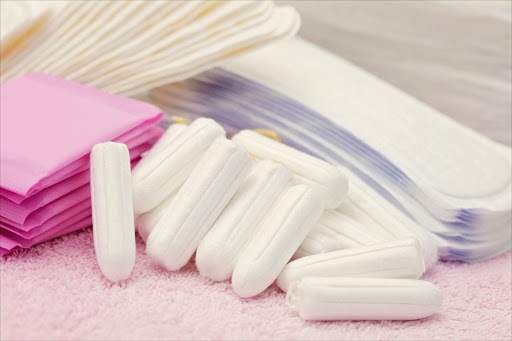
Audio By Carbonatix
The Association of Ghana Industries (AGI) says any policy measure by the government that seeks to remove taxes on imported sanitary pads at the expense of local manufacturers of same will be very detrimental to the economy.
It said much as the waiver of duties or taxes on imported sanitary pads for young women to make the pads more affordable may sound good, it would only end up completely wiping out the few local sanitary pad factories left in the country.
The Association in a statement signed by its Chief Executive Officer, Mr Seth Twum-Akwaboah, therefore, said the call for the removal of duties on imported sanitary pad was misplaced.
“Our local manufacturers of sanitary pads and diapers have been under pressure from cheap and sub-standard imports, which sell at closeout. The few sanitary pad manufacturers with the capacity to expand are only producing at about 30 per cent capacity on account of the influx of such imports,” it said.
It said to further eliminate taxes on such imports would certainly collapse the few factories left or compel them to fold up and become mere importers.
“Our young women deserve affordable sanitary pads but granting tax waivers on imported sanitary pads is not the way to go, with the right incentives and support, these local companies can meet domestic demand, saving the country jobs and forex,” it said.
It said instead of removal of import duties, local manufacturers of hygienic sanitary pads had since petitioned the government for exemption from Value Added Tax (VAT) and import duty on their imported raw materials to make such products more affordable.
"Our local manufacturers believe their sanitary pads will be more affordable to an estimated 70 per cent of our young women in impoverished communities if granted such tax reliefs on raw materials,” the statement said.
It said the public discourse and social commentary suggesting to government to eliminate import duty on imported sanitary pads needed circumspection and ought to be reconsidered vis-à-vis local manufacturing, job creation and revenue generation for government.
“We caution the Government not to play to the gallery, but rather stay focused on its industrial transformation agenda by incentivising local manufacturers rather than imports,” it said.
It said several countries were adopting countervailing taxes to “protect” their local markets, and that it would be unfortunate for Ghana to do the reverse by eliminating taxes on such imports to make them cheaper, especially where there were factories in Ghana producing same items.
Latest Stories
-
Securing children’s tomorrow today: Ghana launches revised ECCD policy
2 hours -
Protestors picket Interior Ministry, demand crackdown on galamsey networks
3 hours -
Labour Minister highlights Zoomlion’s role in gov’t’s 24-hour economy drive
3 hours -
Interior Minister receives Gbenyiri Mediation report to resolve Lobi-Gonja conflict
3 hours -
GTA, UNESCO deepen ties to leverage culture and AI for tourism growth
3 hours -
ECG completes construction of 8 high-tension towers following pylon theft in 2024
4 hours -
Newsfile to discuss 2026 SONA and present reality this Saturday
4 hours -
Dr Hilla Limann Technical University records 17% admission surge
4 hours -
Meetings Africa 2026 closes on a high, Celebrating 20 years of purposeful African connections
4 hours -
Fuel prices to increase marginally from March 1, driven by crude price surge
4 hours -
Drum artiste Aduberks holds maiden concert in Ghana
4 hours -
UCC to honour Vice President with distinguished fellow award
5 hours -
Full text: Mahama’s State of the Nation Address
5 hours -
Accra Mayor halts Makola No. 2 rent increment pending negotiations with facility managers
5 hours -
SoulGroup Spirit Sound drops Ghana medley to honour gospel legends
5 hours

